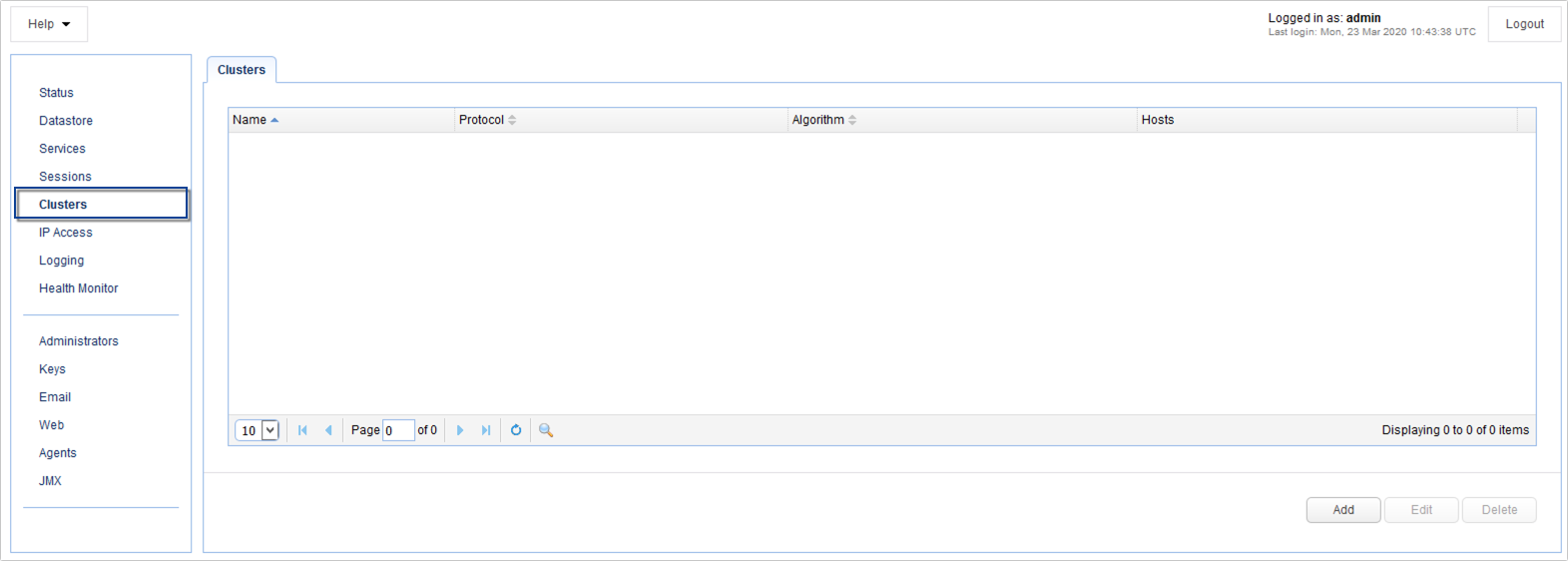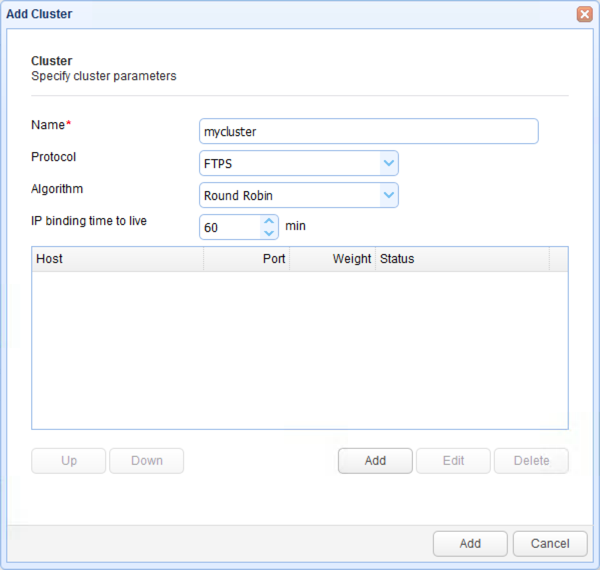A service cluster is used for load balancing purposes and consists of one or more services. When adding a reverse proxy service you have the option setting the remote host to a fixed IP address or hostname or to use a service cluster. If a service cluster is used then incoming connections are reverse proxied to hosts in the service cluster using the specified load balancing algorithm. To view service clusters click on the Clusters node in MFT Gateway Manager.
Note: In order for MFT Gateway to automatically redirect traffic to an active host in the cluster in the event a previously active host becomes unavailable, you need to enable the Health Monitor.
Figure 9

Name - The name of the service cluster.
Protocol - The protocol used by the service cluster.
Algorithm - The algorithm used for load balancing the cluster.
Hosts - The hosts in the service cluster.
To add a service cluster go to the Clusters node of MFT Gateway Manager and click on the Add button. Next, enter a cluster Name, Protocol and load balancing Algorithm you wish to use. Lastly, Add the target hosts you would like to be part of the cluster and click Add to complete.
Figure 10

Name - The name of the service cluster.
Protocol - The protocol used by the service cluster.
Algorithm - The load balancing algorithm to use for this cluster.
IP binding time to live - The maximum amount of time that a client is bound to a host in cluster. While a client is bound to host, all future requests from client will be redirected to host.
If the IP binding time to live value is set to zero (0), MFT Gateway will forward requests to other servers in the cluster based on the algorithm used. This behavior is necessary in instances wherein MFT Gateway is situated behind another load balancer. In such situations, all client requests will appear to come from the same IP (i.e., the IP of the load balancer situated in front of MFT Gateway). When this happens, all clients connecting through that load balancer will be bounded to the same host in the cluster, thereby disregarding MFT Gateway's own load balancing mechanism and eventually overloading that host.
Round Robin - All nodes are treated equally and assigned requests in the order they are listed
Weighted Round Robin - Just like Round Robin but with the ability to favor individual nodes and assign them more connections based on a "Weight"
Random - All nodes treated equally and assigned requests with no regard to the order that they are listed
Least Connections - Favors nodes with the least number of current connections
Weighted Least Connections - Like Least Connections but with the ability to favor individual nodes and assign them more connections based on a "Weight"